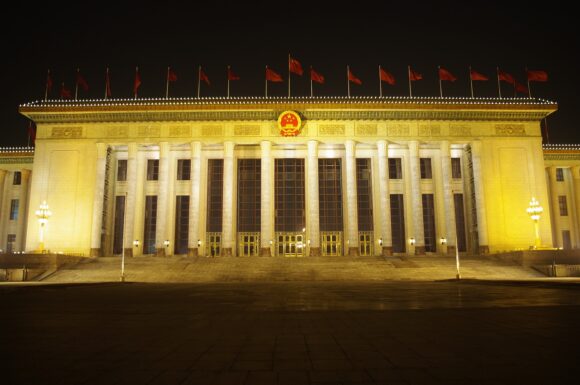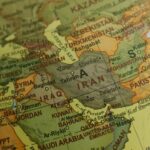Chinese President Xi Jinping concluded a three-nation tour of Southeast Asia in Cambodia on Friday, emphasizing China’s reliability amid the economic uncertainties posed by US President Donald Trump’s tariff proposals.
Over the past decade, China has significantly expanded its influence in the region, primarily through its considerable economic power. In light of Trump’s tariffs, which threaten the export-driven economies of Southeast Asia—particularly those reliant on the US market—Beijing is positioning itself as a bastion of stability and predictability.
Cambodia is particularly vulnerable, facing some of the highest reciprocal tariff rates suggested by Washington. Alongside Trump’s blanket 10 percent tariff, Cambodia could encounter a staggering 49 percent tariff on its exports to the US once the 90-day suspension concludes. For the other countries Xi visited, Vietnam would face a 46 percent tariff, while Malaysia would see a 24 percent tariff.
The timing of Xi’s visit was notably strategic, coinciding with the announcement of Trump’s tariffs, which have caused significant concern in Cambodia and Vietnam, and discontent in Malaysia. Astrid Noren-Nilsson, a senior lecturer in the Study of Contemporary South-East Asia at Lund University in Sweden, remarked in an email interview on Thursday that “the timing of the visit is extraordinarily auspicious for China.”
“Xi Jinping can now embark on this tour with the moral authority and goodwill of a steadfast friend and dependable trading partner.” During his visits to Vietnam and Malaysia, Xi focused on enhancing bilateral relations, particularly in trade and investment, while advocating for a collective stance against unilateralism and protectionism, and promoting the importance of a multilateral trading system.
A report released on Friday by Cambodia’s Foreign Affairs Ministry provided a brief overview of the visit, with minimal reference to the trade crisis, instead emphasizing the bilateral relations. However, China’s state-run Xinhua news agency indicated that Xi had addressed the same trade matters as during his previous visits.
The relationship between Cambodia and China is already well-established. “This significant visit not only reaffirmed the steadfast commitment to the strong friendship between Cambodia and China but also further enhanced and deepened the Comprehensive Strategic Partnership and mutually beneficial cooperation between the two nations,” stated the Cambodian announcement.
During his visit, Xi received a royal audience from King Norodom Sihamoni and engaged in discussions with Prime Minister Hun Manet and Senate President Hun Sen, who is both Hun Manet’s father and his predecessor as prime minister. This marked Xi’s first visit to Cambodia since 2016.
Xi and Hun Manet also oversaw the signing of 37 agreements encompassing various sectors, including investment, trade, education, finance, information, youth initiatives, agriculture, health, water resources, tourism, women’s affairs, and more.
On Friday, details of the most significant agreement were revealed, involving the signing of a public-private partnership contract to finance Cambodia’s ambitious $1.156 billion Funan Techo Canal project, which was initiated last year but faced delays shortly after construction began.
The 151-kilometer canal is intended to connect a branch of the Mekong River to a port on the Gulf of Thailand. For 13 consecutive years, China has been Cambodia’s largest trading partner, with bilateral trade projected to reach $17.83 billion in 2024, heavily favoring China. Additionally, China has consistently been Cambodia’s largest source of foreign investment for the same duration, as well as a key donor of aid and the principal creditor.
China’s stance on climate change and foreign aid stands in contrast to that of the United States. In addressing social and developmental matters, the Foreign Ministry’s statement subtly highlighted differences with U.S. positions, noting that “both sides recognized the global threat of climate change and pledged to enhance environmental protection and promote collaboration in clean energy.” It also referenced China’s assistance in addressing Cambodia’s challenges related to clearing landmines from past conflicts, as well as cooperation in the health sector.
The foreign aid reductions implemented during the Trump administration have impacted these and other areas. The statement further indicated that “both sides agreed to enhance the cooperation mechanism between the armed forces of the two nations.” Beijing has provided funding for the expansion of the Ream Naval Base located on Cambodia’s southern coast, raising concerns that it may serve as a strategic outpost for the Chinese navy in the Gulf of Thailand.
The statement did not address the issue of the naval base. Cambodia has consistently denied any agreements that would grant China special privileges or allow for the establishment of a foreign military base.
Cambodia has affirmed that warships from all friendly nations are permitted to dock at its new pier, provided they adhere to specific conditions.
On Tuesday, Japan announced that two of its minesweepers will visit the Ream base this weekend, marking the first visit by a foreign navy since the completion of the expansion project.






